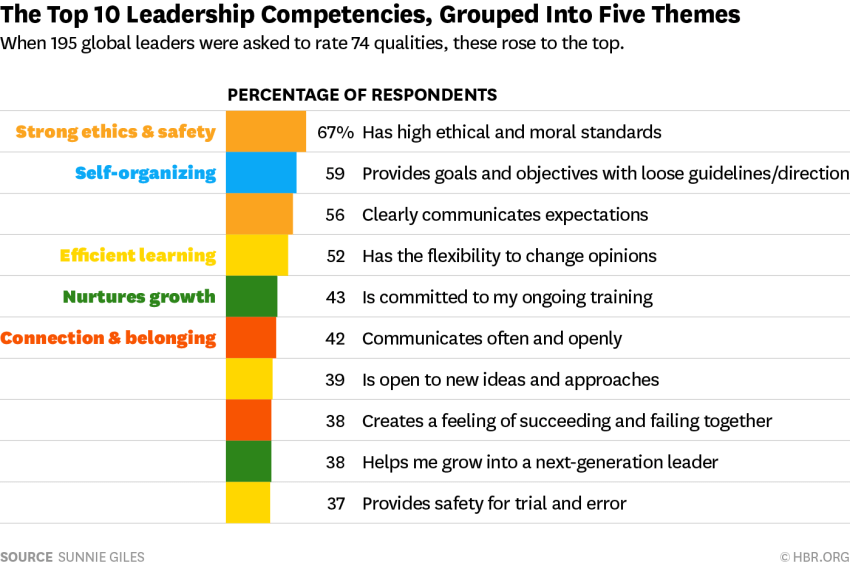
Leaving a Toxic Job: 10 Steps to Get Out
Have you ever found yourself stuck in a job that drains the life out of you? A challenging 9 to 5 job can be difficult
Are you wondering what it truly takes to become a great leader? Here are the qualities you need to lead others to greater success.
According to research, 70% of leaders are self-made, while 30% are born (genetic).
This goes to show that leadership qualities can be learned by practice and repetition.
As you grow and take up more responsibilities in life, you are going to want to put on your leadership hat at some point.
In this post, I am going to show you what leadership means and how you can adopt these qualities to enable you to become a great leader.
It is important to point out that leadership has nothing to do with a person’s position or seniority in an organization.
It also has nothing to do with a person’s attributes or titles. Neither is leadership the same as management.

Leadership is generally defined as the act of motivating a group of people or organization towards achieving a common goal.
Now, let’s consider some of the popular definitions of leadership.
Forbes defines leadership as a process of social influence, which maximizes the efforts of others towards the achievement of a goal.
“Leadership is the activity of influencing people to strive willingly for group objectives” ~ George R Terry.
“Leadership is the ability to secure desirable action from a group of followers voluntarily without the use of coercion”- Allford & Beaty.
To become an effective leader, certain qualities are required for the achievement of one’s goals and objectives.
Regarded by Chaplain College Online as arguably the greatest quality any leader can have.
Great leaders see the big picture of where the team is headed, what it will take to get there, and what it is capable of.
Great leaders have a clear idea of what they are trying to achieve and how to go about it.
They accompany their vision with an excellent and strategic plan to getting there.
Good leaders enlist others in a shared view of the future.
Great leaders have the ability to think critically about the team or organization where they work.
They develop a clear understanding of its strengths, weaknesses, and opportunities and develop tactics or strategies on how to achieve their goals or solve a particular problem.
An ethical leader is an effective leader.
In a survey conducted by the Harvard Business Review, the number one quality expected of a leader is to have high ethical and moral standards.

Successful leaders have a solid moral foundation with an undeniably strong character.
Nothing is more demoralizing than a leader who is dishonest or lies.
A strong belief is the hallmark of a great ethical leader, and they see this as a resolute way of life.
This provides a positive example for people to emulate as others are encouraged by them.
The ability of leaders to stick to their words by doing what they say they will do is a common trait among great leaders.
As a leader, learn to follow through.
The requirement of integrity may not necessarily be required of an employee as an evaluation metric. However, it remains important for individuals and organizations to possess this leadership trait.
As a leader, piloting the state of affairs of a group of people or an organization that requires making countless critical decisions is essential. This quality cannot be negotiated.
According to research, integrity could potentially become a blind spot for organizations.
This was identified as the second most important leadership quality.
Great leaders empower others to self-organize.
Effective leaders understand that sometimes you have to sit back and let your team do the work.
They provide a clear direction while allowing others to organize their own time and work.
To become a more effective leader, it is important to delegate power to those closest to the action.
No man can do everything alone, and research has shown that empowered teams are more productive and proactive.
An empowered team shows commitment and a high level of satisfaction to the team and organization.
This can be hard for leaders who are used to doing the work and touching everything.
However, where you have good and qualified people, it is better to delegate power, set expectations, and hold them accountable.
Great leaders understand the value of time, so work with your team to make sure everyone is good at their job, and then allow them to do their jobs. This builds trust.
This quality ranks in the top 10 most important leadership qualities according to leaders around the world.
Great leaders frequently and openly communicate ideas and expectations to others clearly and concisely.
As a leader, having effective interpersonal communication shows your ability to listen, interact, and connect with people.
Great leaders show genuine interest in others when they talk about what is going on in their lives.
This involves making time for people and being cognizant of who they are as an individual.
Good leaders understand that the success of a team, or business strategy, largely depends on the quality of their interpersonal skills.
Checkout 5 Ways to Improve Your Interpersonal Communication Skills
Effective leaders better understand and recognize their strengths and weaknesses.
They recognize their imperfection and only try to play to their strengths and abilities.
True leaders build a leadership style that is authentic to whom they truly are.
They are also conscious of how people view them.
The survey conducted by the Harvard Business Review shows that the ability of a leader to adapt to any situation and be open to new ideas is one of the top qualities of a good leader.
Great leaders can adapt to any situation as they understand that not everything will go according to plan.
They, therefore, meet challenges with a flexible attitude and embrace the ever-changing nature of life.
They have no problem changing opinions or courses when necessary.
Great leaders also recognize that there is no one way of getting things done, hence the need to be open to new ideas and possibilities.
They understand that success comes with the willingness to do things differently by bringing in fresh minds to inspire new ideas.
Great leaders understand the importance of staying cool in the face of adversity.
When you lose your temper, you lose, says the successful leader.
Indeed, a man who lacks self-control is like a city that has been broken into and has no walls.
What is most essential will be determined through self-control.
Great leaders recognize the advantage of committing to the personal growth and development of others.
Research shows that people get motivated when their leader shows a genuine sense of commitment to their personal growth and development.
They reciprocate by going the extra mile as a way of showing their loyalty and gratitude.
As a leader who wants the best from his team, it is important to:
· Advocate for them
· Sponsor their important projects
· Allow them to stretch
· Support their training and promotions
Great leaders understand the importance of training within an organization, and they balance that up with a philosophy that allows members to thrive.
I know it’s easy to get lost in the minefield of what it takes to become a great leader.
However, I firmly believe that if you take on these 10 qualities, you will positively impact a lot of people for the greater good, and in a way that makes this world a better place.
I hope you find this post useful.
For questions, clarifications, and contributions, please comment below.

To empower you to cultivate a strong self-esteem that transforms your relationships and equips you to overcome life’s obstacles with resilience
New!!! Free Training Replay in...
Check out our latest articles. Boost your social intelligence

Have you ever found yourself stuck in a job that drains the life out of you? A challenging 9 to 5 job can be difficult

You can express yourself confidently without feeling shy or experiencing burnout. Here is how to exude confidence as an introvert. As an introvert, maintaining your

Anyone, including introverts, can live an interesting and fun-filled life. Here is how to be interesting as an introvert. Generally, many people believe that introverts

We sometimes wonder if going into a relationship with a fellow introvert is a good idea. I mean, won’t the relationship be as boring as hell? Maybe not really!

Are you ready to get out of your shell to start your dream business? Here is how to be an entrepreneur as an introvert and become successful!

As an introvert, you might be wondering if you really can become successful as a business owner. Read on to know how business success works for introverts.

Sign up for our mailing list and you will receive the first chapter free!
By signing up, you agree to our terms and privacy policy.
Warning: Apply The Methods in This Training Responsibly

Sign up for our mailing list and get the first chapter for free!
By signing up, you agree to our terms and privacy policy